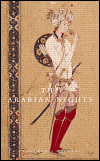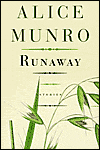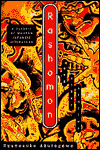To be:
1.
Good solid hunger. As a vegan I get hungry a lot more often than when I was a vegetarian, and also more ravenously. I like this a lot. (This is due partly to my slight masochism when it comes to keeping my body healthy and fit, and partly to the zeitgeist of the twenty-first century, according to which thinness equates beauty.) I like it because hunger is a signal that my body is efficient in processing the food I give it, that it is better able to empty and clean itself. And besides, when I'm really hungry, baby carrots dipped in hummus are a treat fit for the gods.
2.
Soy chocolate milk. It tastes better to me than regular chocolate milk. It's light and only slightly sweet and doesn't do a wild dance in my stomach.
3.
More time in the kitchen. I know this sounds a bit crazy, but I love to cook -- and that includes the prep work of peeling and chopping. I'm in love with my Wusthoff chef's knife that I bought two years ago with a gift card my parents gave me for Christmas. Mincing garlic, slicing tomatoes, cubing potatoes are simply a pleasure now. Also, I love the challenge of converting recipes that contain dairy and eggs into vegan ones. I made some really nice waffles last week with soy milk and maple syrup and mineral water as the liquid ingredients.
4.
Dark chocolate. It doesn't contain milk products and therefore has an intense, pure taste and the most wonderful smell. I eat it a lot these days for dessert and very seldom crave sweeter, creamier or more elaborate confections.
5.
The planet. Self-evident.
And not to be:
1.
Flatulence. I think I may be treading into "too much information" territory here, but to me this is the main drawback of being a vegan. I love beans and lentils and eat a lot of raw fruits and vegetables and my colon has a field day with them.
2.
Family's dismay. My mom had just gotten used to the idea of my being a vegetarian -- it took four years -- and stopped pestering me to eat barbecued pork on the Fourth of July and turkey at Thanksgiving. (Just a bite! For protein!) She even bought textured soy protein for me and deep-fried it (!!) coated in egg and bread crumbs. And then I spring on her that I'm not eating eggs (or dairy) any more. She tells me I can be healthy even if I eat eggs and cheese. Okay, I say. I bite my tongue really hard because I don't want to start the animal rights argument yet again. She rolls her eyes and grabs a pen and her shopping list and asks me, "So what
will you eat?" "Your killer eggplant spread," I say. She makes a killer eggplant spread. I see a tiny grin on her face.
3.
Biscuits and scones. I can't imagine baking these without butter, cream, eggs. And a biscuit hot out of the oven... (big, deep, very deep sigh).
4.
Ordinary restaurant menus. I've discovered I have two (if I'm really lucky) options when I go out to eat with my family: angel hair pasta with marinara sauce and the portobello mushroom burger without the cheese. And fries, sadly, delicious crisp fries. And no, taking my family out to a vegetarian restaurant isn't an option. My sister and father would go, but my mother, despite her best intentions, cannot hide her dissatisfaction with a vegetarian menu, doesn't eat what she orders and on the way home insists we stop for Chinese food or chicken tenders.
5.
Cheese. My favorite is white cheddar. There are many wonderful artisanal cheeses out there now and I feel just the slightest pang that I'm not able to taste them. But I have no regrets.




